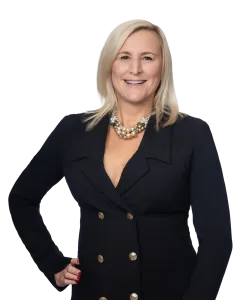New Jersey Clamps Down on Pharma Interactions with Prescribers
A new administrative rule promulgated and adopted by the Attorney General for the state of New Jersey (the AG) will “regulate the receipt and acceptance by prescribers of anything of value from pharmaceutical manufacturers” in an attempt to ensure that prescriber’s independent medical judgment is not unduly influenced by financial relationships with drug makers.
The new regulations, which apply to certain arrangements and interactions occurring as of January 16, 2018, address both “prohibited” and “permitted” gifts and payments that pharmaceutical manufacturers may provide prescribers. As an initial matter, it is important to note that while these rules do not apply to device manufacturers, the definition of “pharmaceutical manufacturer” is incredibly broad, to include wholesale distributors and compounding entities, as well as more standard ways of describing manufacturers of prescription drugs and prescription biologics.
It also applies to “pharmaceutical manufacturer’s agents,” which can mean any person who engages in marketing or detailing on the manufacturer’s behalf, including contract sales forces, “e-detailing entities,” and marketing companies. The term “prescriber” is also broadly defined to include any physician, podiatrist, physician assistant, advanced practice nurse, dentist, or optometrist licensed in New Jersey, regardless of where the interaction with the pharmaceutical manufacturer takes place.
While the list of prohibited and permitted items are not particularly out of custom, a few details of the rule are worthy of note:
- Even though manufacturers may compensate prescribers for certain “bona fide services,” there is an annual cap of $10,000 per prescriber for compensation related to “presentations as speakers at promotional activities, participation on advisory boards, and consulting arrangements.” Payments for speaking at educational events are not subject to the cap, but must be fair market value and set forth in a written agreement, which the regulations specifically describe. Payments for research activities, royalties and licensing fees are not subject to the cap.
- Prescribers that serve as a speaker at an educational event or a promotional activity must “directly disclose to attendees either orally or in writing at the beginning of the presentation that the prescriber has accepted payment for bona fide services from the sponsoring pharmaceutical manufacturer within the preceding five years.”
- The definition of “bona fide services” mandates the execution of a written agreement and further requires that the agreement contain all of the following elements:
- A description of the services to be provided;
- The dollar value of the consideration to be received by the prescriber, based on fair market value of the services;
- Specification that the meetings held in association with bona fide services occur in venues and under circumstances conducive to the services provided, and that the activities related to the services are the primary focus of the meeting;
- Identification of the legitimate need for services in advance;
- The connection between the competence, knowledge, and expertise of the prescriber and the purpose of the arrangement;
- Description of how participation of the prescriber is reasonably related to achieving the identified purpose;
- The manner by which the prescriber will maintain records concerning the arrangement and the services provided by the prescriber; and
- An attestation that the prescriber’s decision to render the services is not unduly influenced by a pharmaceutical manufacturer’s agent.
Obviously, the inclusion of such detailed elements may heighten the chance that some written agreements may run afoul of this requirement, and the inclusion of an actual attestation by the prescriber could potentially subject the prescriber to personal liability.
- The only meals “permitted” are “modest meals” provided through the organizer of an “educational event” and those provided by a manufacturer to “non-faculty prescribers through promotional services.” A “modest meal” is defined as a meal with a value of no more than $15.00 per prescriber.
- Activities related to “research” are outside the scope of the final regulations.
- Prescribers may accept drug samples so long at the prescriber does not charge their patient for the sample.
Of particular note and interest is the $15 per prescriber limit on meals. The limit prescribed by the regulation is incredibly de minims. Other state statutes restricting meals provided by pharmaceutical manufacturers to prescribers tend to be more lenient, such as the Massachusetts Pharmaceutical and Medical Device Gift Ban (M.G.L. § 111N), which permits modest meals in connection with non-CME educational presentations in a venue and manner conducive to informational communications.
In commentary to the final regulation, the Attorney General recognizes that other laws and industry standards – for example, the Federal Anti-Kickback Statute and the PhRMA Code on Interactions with Healthcare Professionals – address many of the apparent concerns of the AG’s office, but nevertheless declined to adopt those standards as law in the state. However, the AG did comment that they did “not believe it is necessary to impose additional reporting requirements upon manufacturers and prescribers” beyond those that are required under the Federal Physician Payment Sunshine Act. Finally, it is interesting to note that the new regulations themselves to not appear to carry any specific penalty for violation; instead, the AG stated in commentary that all “respective licensing boards have the authority to impose disciplinary action and/or civil penalties, as deemed appropriate by the board after consideration of all relevant facts and circumstances, for a violation of a statute or rule.”
Arent Fox’s Health Care group regularly monitors and analyzes laws affecting the interactions between drug manufacturers and prescribers. For more detailed information regarding New Jersey’s new regulation and how it may impact your business and operations, or other issues related to such interaction, contact please Stephanie Trunk or the Arent Fox professional who usually handles your matters.
Contacts
- Related Industries
-
Read Time
6Minutes
